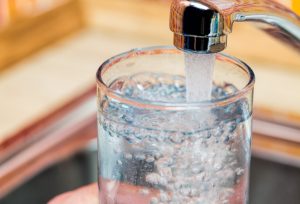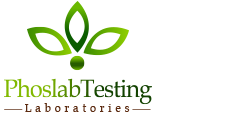- HOME
- Services
- Environmental Testing
- BTEX Testing Services
- Volatile Organic Compound (VOC) Testing
- Total Recoverable Petroleum Hydrocarbons Testing and Analysis
- Pesticide Testing and Analysis
- Polycyclic Aromatic Hydrocarbons Testing
- Hazardous Waste
- Wastewater Testing
- Soil Testing
- TCLP Testing
- SPLP Testing
- RCRA Metals TCLP Analysis
- Agriculture Testing Laboratory
- Brownfield Testing Laboratory
- Mineral Testing Laboratory
- Chemical Testing Laboratory
- Field Sampling
- Phoslab Environmental Consulting
- Resources
- About Us
- Contact Us
- PhosBlog
Call Us Toll Free! (863) 682-5897
Drinking Water Sampling
Phoslab Environmental Testing Services
 The 2015 Flint, Michigan drinking water crisis brought the importance of clean and healthy drinking water into sharp focus. After Flint residents began to complain of severe health problems, regulators that tested Flint’s water discovered that it contained abnormally high levels of lead and copper, as well as E. coli and other bacterial contaminants, all of which were traced to the Flint River and the city’s aging water supply infrastructure.
The 2015 Flint, Michigan drinking water crisis brought the importance of clean and healthy drinking water into sharp focus. After Flint residents began to complain of severe health problems, regulators that tested Flint’s water discovered that it contained abnormally high levels of lead and copper, as well as E. coli and other bacterial contaminants, all of which were traced to the Flint River and the city’s aging water supply infrastructure.
Florida residents are fortunate in that they have not experienced a similar large scale drinking water catastrophe. The state’s drinking water comes from wells and aquifers that are generally considered to be contaminant-free, and municipalities in the state take great care to treat drinking water before it is supplied to residents.
Phoslab, in central Florida, offers drinking water sampling services throughout the state for businesses, municipalities, and individuals who desire extra assurances that their drinking water is healthy and contaminant-free.
Florida Drinking Water Sampling for All Water Sources
Florida drinking water typically comes from public water systems or private wells. Public systems are generally managed by municipal utility companies that collect water from groundwater or some other source for treatment prior to delivering it to homes or businesses. Owners of private wells are responsible for treating their own drinking water. In both cases, the water must be treated to remove contaminants, including:
- Natural chemicals and minerals;
- Fertilizer and pesticide runoff from local agricultural operations;
- Overflows from sewers and wastewater facilities;
- Septic system contamination;
- Dumping from manufacturing operations.
Regardless of whether drinking water comes from a public utility or private well, businesses and residents will receive the greatest health and safety assurances with a drinking water sampling program that meets or exceeds state and federal standards.
State-of-the-Art Drinking Water Testing Lab in Florida
Phoslab offers a complete slate of EPA-approved drinking water sampling services that augment and complement its surface water sampling programs. As with our Florida surface water sampling tests, Phoslab’s drinking water sampling services include different techniques and advanced laboratory tests that are designed to detect contamination and, when implemented on a regular or periodic basis, to flag changes in drinking water that can be early warning signs of problems.
Our state-of-the-art laboratories are equipped to test drinking water for:
- Bacterial contaminants such as coliform and E. coli;
- Heavy metal contamination from lead or mercury;
- Excess or unusual mineral concentrations;
- Fertilizer byproducts, such as nitrates, nitrites, and nox.
A single test at any one point in time will show contaminants at that point but will not provide a dynamic picture of drinking water quality. A drinking water sampling program that tests water both regularly and after major events, such as heavy rainfalls that can wash contaminants into drinking water supplies, provides the best assurances of water quality and safety.
Community Advisories for Drinking Water Problems
The importance of safe drinking water is highlighted by the 3-tier system that the EPA and state environmental authorities have created to alert businesses and residents of problems with drinking water supplies. Tier 1 notifications are the most serious, and require water suppliers to notify residents of waterborne contamination within 24 hours after the contamination is first identified. Tier 2 notifications can occur over a 30-day period, and Tier 3 notifications are made through Consumer Confidence Reports (CCRs) that public water suppliers are obligated to publish annually.
Florida Field Sampling Techniques for Drinking Water
The Safe Water Drinking Act sets forth the minimum standards and frequency for drinking water sampling. In addition, the EPA has established standards and regulations that define the testing protocol for more than 90 different contaminants that can adversely affect drinking water quality and safety. In order to give consumers assurances that their drinking water is safe, municipal community water suppliers are also obligated to publish annual CCRs that report the results of the mandated drinking water testing.
Public and private water suppliers are encouraged to monitor drinking water safety and quality more frequently than is required under the federal minimum standards. Phoslab’s sampling techniques follow EPA-approved guidelines for:
- Sample collection, preservation and storage;
- Identification and measurement of contaminants;
- Quality control of all aspects of the sampling and testing; and
- Reporting results in a manner that is consistent with CCR publications and, where requested, making recommendations for remediation of contamination problems.
Contact PhosLab for Florida Drinking Water Sampling Services
Phoslab Environmental Laboratories, in Lakeland Florida, provides drinking water sampling, testing, and analysis services for public and private drinking water suppliers throughout the state. Our technicians are trained in the most current field sampling and analysis techniques, and our laboratories are equipped with the latest technology to identify hundreds of different contaminants that can affect the quality and safety of drinking water supplies. Please see our website or call us for answers to your questions about drinking water safety or to speak with one of our drinking water sampling specialists about how our services can provide assurances of the safety of your drinking water.
Additional Resources for Drinking Water Sampling Services in Florida:
- Floridadep.gov: Source & Drinking Water Program. https://floridadep.gov/water/source-drinking-water
- CDC.gov: Public Water Systems FAQ. https://www.cdc.gov/healthywater/drinking/public/faq.html
- TheAtlantic.com: Aging Pipes Are Poisoning America’s Tap Water. https://www.theatlantic.com/business/archive/2015/07/dont-drink-the-water/399803/
- EPA.gov: Analytical Methods for Drinking Water. https://www.epa.gov/dwanalyticalmethods/learn-about-drinking-water-analytical-methods
